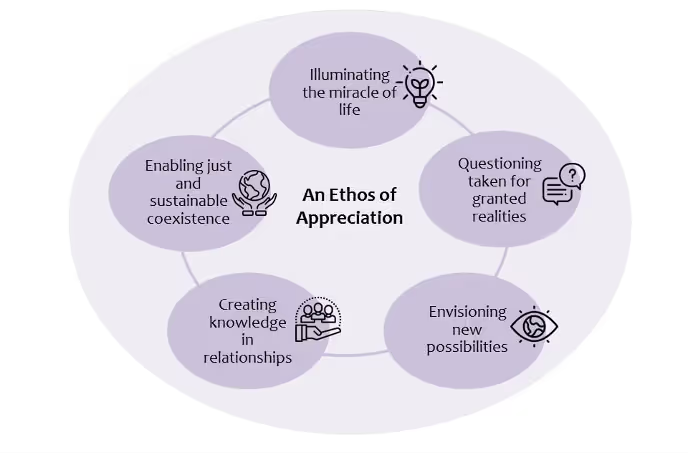Co-creative methods for practicing care-full scholarship (Angela Moriggi)
Both the planned and the actual emergent meaning(s) and experience of a research encounter, can be equally as significant in shaping the researcher and the research participants’ potential for co-creativity. This point is well evidenced by Moriggi (2022) in her framing and practicing of arts-based creative methods through Appreciative Inquiry and an ethics of care.
In the following video Angela reflects further on some of the lessons she has learnt through her experience of applying some the methods approaches featured in her chapter “An ethos and practice of appreciation for transformative research: Appreciative Inquiry, care ethics, and creative methods” which is also part of the RECOMS edited collection on ‘co-creativity and engaged scholarship’.
In the chapter she describes different kinds of co-creative methods in detail, and explains how they helped her to put into practice a so-called ‘Ethos of appreciation’ (see below a figure from the chapter), which is a philosophy inspired by Appreciative Inquiry, that tries to celebrate life in all its forms, and appreciate our more-than-human companions.

Her chapter helps to further illustrate why transdisciplinary forms of scientific enquiry, when practiced as a form of care-full scholarship (Moriggi et al., 2020), offer such a strong foundation for nurturing co-creative research practice in and of itself. At the same time, it also evidences why ‘slower’ and more open forms of research enquiry can be particularly conducive to co-creative thinking, in which the time and space is made available for the researcher to understand from the perspective of the participant; and for the participant – if not to understand from the perspective of the researcher – to at least become more consciously self-aware of their own perspective.




